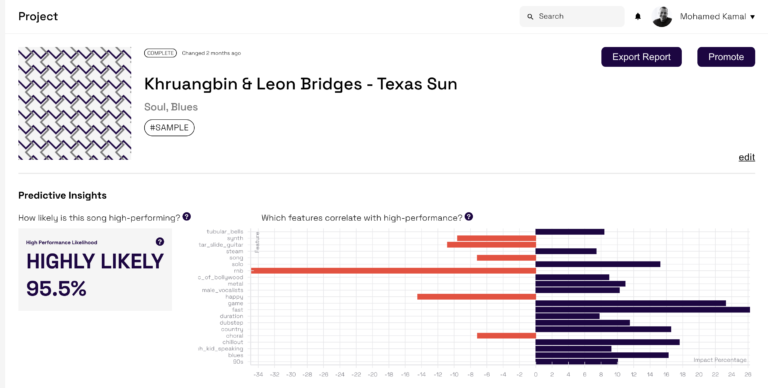Happy new year.
I’m excited to tell you what I have been working on over the past few years. I have had two realizations during this time; (1) building a business is one of the most rewarding experiences to personal growth and understanding our world, (2) operating an AI company as a black Muslim man is packed with doubt, uncertainty, difficulty, and guesswork. The feeling of not being qualified or experienced is a constant reminder that the work I do matters.
That’s the new normal, and I am okay with this.
I’ve been working on Unbias where we’ve developed a product that estimates music performance on streaming platforms, using only audio as an input. We have been in private beta for eight months. It’s our third pivot, and I know we are up to something big.
Here’s the crazy part, we started in 2017 as a political data science platform, helping underrepresented candidates efficiently target voters. I wanted to create an impact by using technologies I understood well. What made us different is that we developed an accurate approach to estimate ideology without expensive survey models. It was a big deal, and I am proud of it.
We landed a few nationally recognized campaigns and hit revenue fast — $7.5K MRR in the first three months. It was an intense time. Although I saw a path to growing Unbias in politics, I always felt like an outsider in the political tech space, perhaps because of my immigrant roots. I decided to pivot. I wasn’t sure where at the time, but I knew it had to be in a market I understood firmly.
Also, I had nagging questions about AI that I needed to answer:
- What is a scalable method to understand and predict rare events?
- Can it translate to the music industry?
To answer these questions, we spent a year researching events of high-performing songs across all Spotify genres. This process was slow, time-consuming, and frustrating at best but we got there. We can now estimate which features occur through a track’s length like instruments, genre, mood, theme, and even voice, in every second of a song. This gives us a rich data-set to understand and model the characteristics of high-performing songs.
I believe our method requires a research paper on its own, but what I care about right now is putting it in the hands of the music industry, as quickly as possible. While in private beta, we have been tweaking and getting feedback from artists, labels, and artist managers and have improved our models to a place where I believe it’s ready for the wider public.
If you’re interested in trying out Unbias, please reach out to me directly, or if you know anyone you think I should be talking with, please send them my way! I’m looking to connect with others in the music and music-technology space. You can also reach out to me if you have questions in AI.
Mohamed Kamal – CEO and Founder




